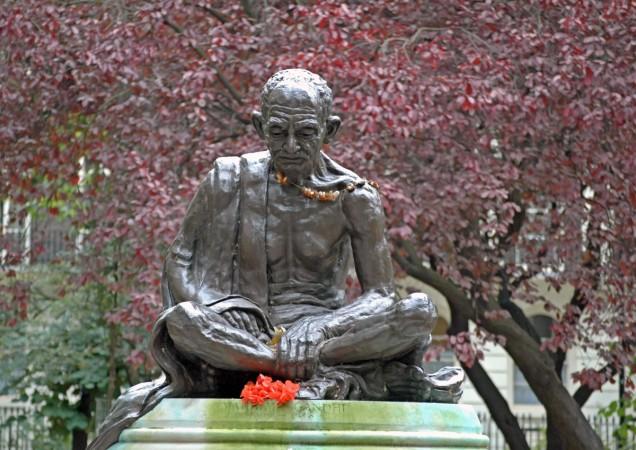
Calling Mahatma Gandhi an inspiration, British Prime Minister David Cameron on Saturday announced that Bapu's statue will be installed and unveiled in Parliament Square on 14 March.
"Mahatma Gandhi is an inspiration. His approach of non-violence will resonate forever as a positive legacy – not just for the UK and India, but the world over... The statue in Parliament Square not only marks his huge importance in the history of both our countries, but will enrich the firm bond of friendship between the world's oldest democracy and its largest," Cameron said.
Sajid Javid, the culture secretary who chairs the Gandhi Statue Special Advisory Board, too believes that the statue is a symbol of Gandhi's principles and beliefs and it also represents the cordial relations that UK and India share, reports Hindustan Times.
"Gandhi is one of the most inspirational figures in history and the statute will be a fitting symbol to his teachings of non-violent, peaceful protests. It also highlights the strength of the relationship and friendship that Britain has with India today."
People from across India, UK and all around the world had contributed for the statue because of which the donations crossed the target of one million pounds.
"Generous donors have contributed sums from a pound up to hundreds of thousands of pounds from UK, India and around the world.... As Gandhi said 'If the cause is right the means will come'," Economist and chairman of the Gandhi Statue Memorial Trust Meghnad Desai said.
Gandhi's statue will be installed alongside the statues of Winston Churchill and Nelson Mandela among other iconic figures. It has been made by noted British sculptor Philip Jackson, who used a photo of Gandhi's arrival to UK in 1931 for the Second Round Table Conference.
Gandhi's first statue in UK was installed in London's Tavistock Square in 1968 and the announcement for the installation of the second one was made during chancellor George Osborne's visit to India in July 2014.





!['It's not Mumbai traffic, it's air traffic': Suriya apologises to Mumbai media after paparazzi yelled At Him for making them wait for hours [Watch]](https://data1.ibtimes.co.in/en/full/806234/its-not-mumbai-traffic-its-air-traffic-suriya-apologises-mumbai-media-after-paparazzi.jpg?w=220&h=138)
![Bigg Boss 16-fame Sreejita De and Michael Blohm-Pape exchange wedding vows in dreamy Bengali ceremony [Inside Pics]](https://data1.ibtimes.co.in/en/full/806233/bigg-boss-16-fame-sreejita-de-michael-blohm-pape-exchange-wedding-vows-dreamy-bengali-ceremony.jpg?w=220&h=138)






